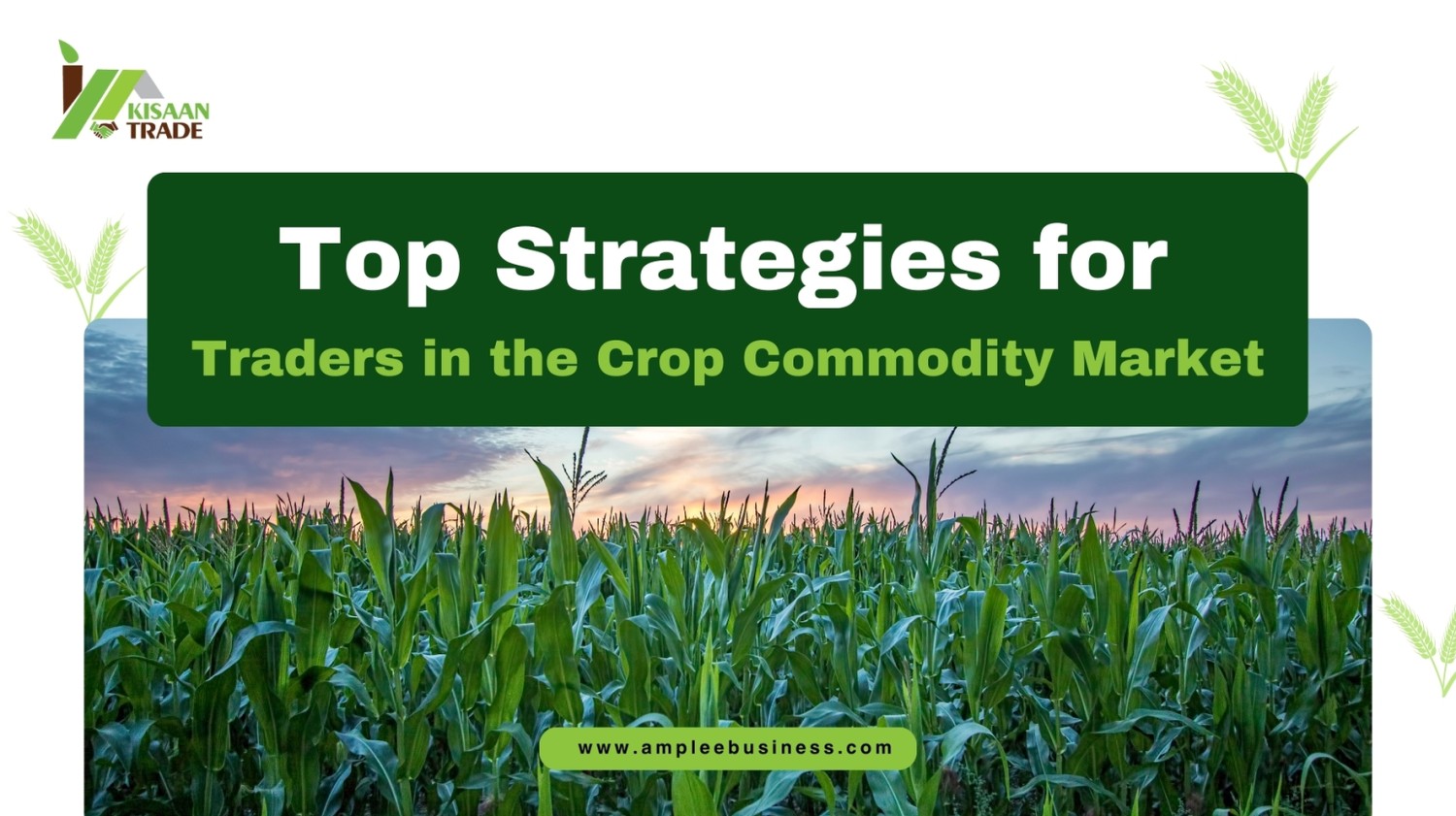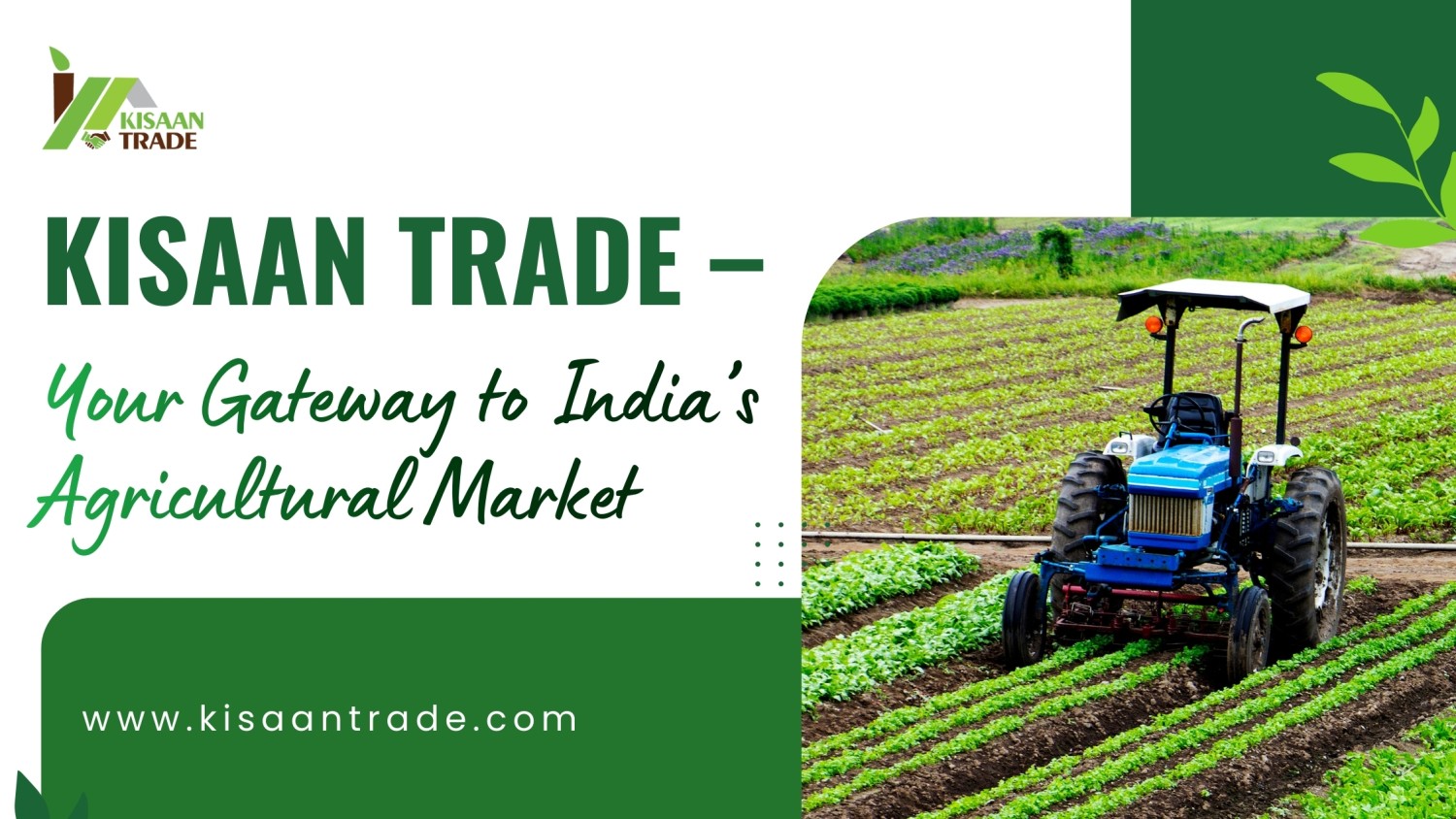Top Strategies for Traders in the Crop Commodity Market

Top Strategies for Traders in the Crop Commodity Market
With this busy lifestyle, the crop commodity market offers the farmers and traders a space to gain a good return on investment. But for that, you need to adopt smart and simple tips to reduce risks and allow you to make wise decisions.
Whether you are a farmer who sells farm produce or even a trader, this blog provides simple, uncomplicated crop commodity market advice to help you trade confidently.
Top Trading Tips for the Crop Commodity Market:
1. Know About the Market First
Learn about the basics of the agricultural commodity market before trading:
What are crop commodities?
They are crops like wheat, corn, soybeans, rice, and cotton.
What affects prices?
Weather, demand, supply, and government policy all have some impact.
How are the trades made?
By futures contracts, spot markets, and forward contracts.
Tip: Start by understanding how the price works. That is intelligent trading step one.
2. Respect Seasonal Price Trends
Most farm products have seasonal trends. For example:
Harvest Season = High Supply = Prices will tend to fall
Off-season = Low Supply = Prices will tend to be higher
Learn past market graphs and trends so that you know when to buy at the low price and sell when the price is high.
3. Adjust Weather Trends
Weather affects crops directly. If you know how weather affects the availability of crops, then you can predict price movement.
Floods or drought → Less crops → Prices may increase
Good rain → More crops → Prices may fall
Use weather apps and breaking news to gain an advantage over other people in your trades.
4. Diversify Your Trades
The best trading trick is not banking on a single crop.
Trade different commodities like Wheat, Soybeans, Rice, Cotton, Maize
This minimises risk and keeps yields level. Even if one crop is not doing well, the others may do better.
5. Listen to Government Announcements
Governments tend to make convenient reports and releases like:
USDA reports (USA), MSP (Minimum Support Price) update (India), import/exports bans/subsidies
Reports of such sorts tend to widely influence prices in the commodity market. Stay thoroughly aware of them to make decisions on.
6. Have a Trade Plan
Trade not blind. Before starting a trade, know:
When do you get in (buy/sell)?
How much profit do you desire?
What loss amount can you sustain?
This is what is known as a trading plan and is among the most useful commodity trading secrets to success.
7. Keep Track of Global News
Foreign news has the power to affect local crop prices:
War in the countries that export grains, Pestilence in leading regions, Shift in currency or inflation, Port or shipping slowdown
Keep track of global and local news. It provides you with an overview of the big picture of the commodity market.
8. Use Trading Apps and Market Tools
Make Use of Technology. There are many apps for:
Live market prices
Trade news of commodities
Update news
Weather
Trend charts
You can stay updated through the Kisaanhelpline App
9. Develop Relationships with Local Mandi
Farmers need to be connected to mandis and local traders. Close relationships involve:
Receiving timely and better price information
Being in touch with prevailing demand in the market
Not having middlemen at times
Developing trust can be helpful in business.
10. Learn the Lesson of Every Season
Each season you trade, you learn something new. Listen:
What didn't work and what did
Which crop did better
How some news moved the market
Trading is not luck—it's practice, patience, and learning.
Where to Trade: Choose the Right Platform
To succeed in the commodity market, you ought to use the right trading platform. These platforms allow you to search for prevailing crop prices and market news and set up safe buying or selling transactions. For example, KisaanTrade is India's biggest B2B online marketplace, which provides farmers and traders a platform to connect directly with one another. It allows buyers to locate genuine buyers and earn more money using fewer intermediaries. With reliable websites like this one, exchange is convenient, fast, and safe.
Conclusion
The crop commodity market is full of great opportunities, but only if done right. These crop commodity market strategies are meant to assist farmers as well as traders to minimise risks and achieve maximum profit.
Keep in mind the golden rule:
Knowledge + Planning + Timing = Successful Trading








